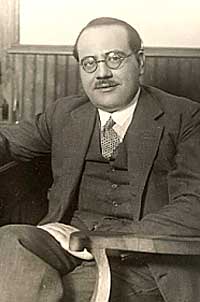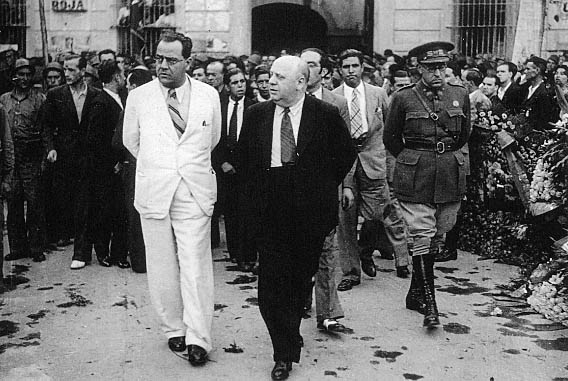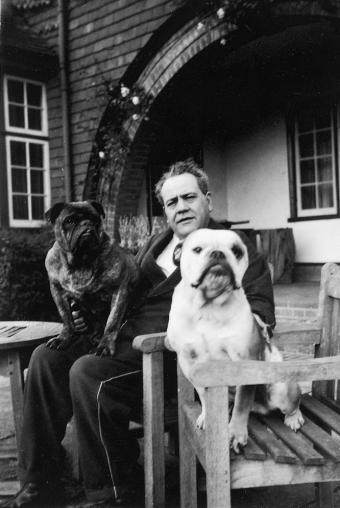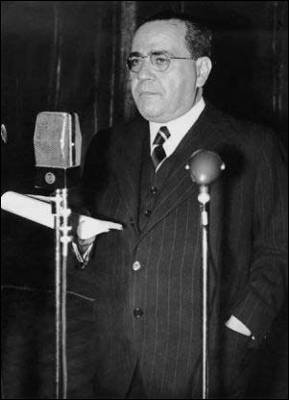<Back to Index>
- Mathematician Arne Carl August Beurling, 1905
- Architect Hugo Alvar Henrik Aalto, 1898
- Prime Minister of Spain Juan Negrín y López, 1892
PAGE SPONSOR
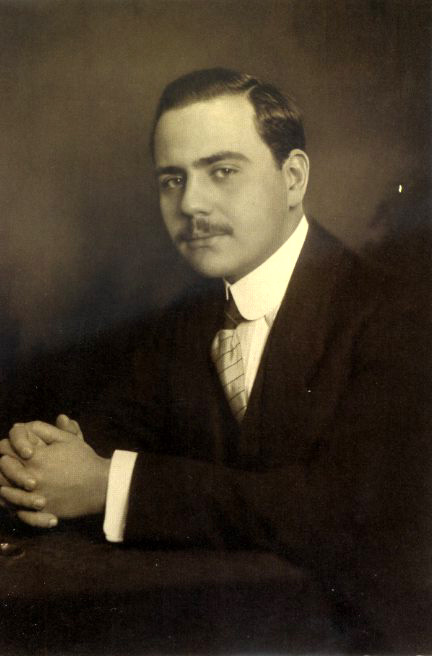

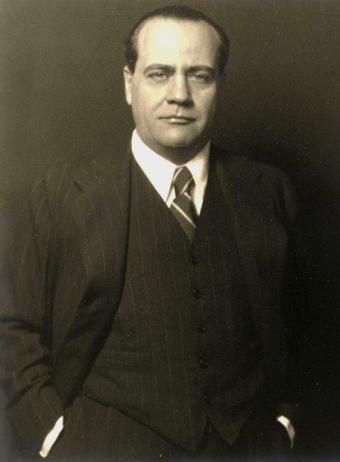
Juan Negrín y López (3 February 1892 - 12 November 1956) was a Spanish politician and physician.
Born in Las Palmas de Gran Canaria, Negrín came from a religious middle class family. He was a pupil of the Nobel Prize of Medicine laureate, Ramon y Cajal, qualified as a doctor in Germany and later he became a university professor of physiology at Madrid University (Universidad Complutense) at the age of 29. Negrin spoke English, French, German and also a little Russian.
On 21 July 1914 he married María Fidelman y Brodsky and had Juan Negrín y Fidelman, married to Rosita Díaz y Gimeno, Rómulo Negrín y Fidelman (Madrid, 1917 - 30 July 2004), married to Jeanne Fetter and father of Juan Román Negrín y Fetter (b. Mexico City, 20 September 1945), and Miguel Negrín y Fidelman.
Negrín joined the Spanish Socialist Workers' Party (PSOE) in 1929. He belonged to the Indalecio Prieto faction, opposed to that led by Largo Caballero, left wing extremists. In 1931 he was elected deputy for Las Palmas, in the Canary Islands. Negrin helped many people to escape from the revolutionary checas in July and August 1936.
He was named
Minister of Finance in September 1936 in the government of Francisco Largo Caballero. As the finance minister, he built up the carabineros (custom guards), a force of 20,000 men, which was later nicknamed The Hundred Thousand Sons of Negrín, in order to recover the control of the French frontier posts, which had been seized by the CNT. He
also took the controversial decision to transfer the Spanish gold
reserves to the Soviet Union in return for arms to continue the war
(October 1936). Worth $500 million at the time (another $240 million had been sent to France in July), critics argued that this action put the Republican government under the control of Joseph Stalin.
On the military level he launched a series of offensives at Brunete, Belchite, Teruel and the one on the Ebro. Although Negrín had always been a centrist in the PSOE, he maintained links with the Spanish Communist Party (PCE), whose policies at that point were in favor of a Popular Front alignment.
One of the most controversial aspects of Negrín's government was its deep infiltration by the PCE, leading his critics - on both the Spanish left and right - to accuse him of being a puppet for the eventual establishment of a Stalinist communist state. The collapse of his government against the onslaught of Franco's forces meant that the possible future nature of the Spanish Republic would remain a historical mystery. Negrín relied on the Communists to curtail the Anarchist wing of the Spanish Left, and was forced to rely on the Soviet Union, then led by Joseph Stalin, for weapons and armament, because of the arms embargo imposed by the Non - Intervention Committee. Soviet activities in Spain seemed to be focused as much or more on NKVD directed purges of real or alleged Trotskyists and anarchists within the republican zone as on winning the war against the Phalange.
The military situation of the Spanish Republic deteriorated steadily under Negrín's government, largely because of the superior quality of the opposing generals and officers many of whom were veterans of the Rif War, and by 1938 the overwhelming advantage of the Nationalists in terms of men (20%), aircraft and artillery provided by Germany and Italy. On May 1938, Negrin issued the "Thirteen Points" (Trece Puntos), a program for peace negotiations, including absolute independence of Spain, liberty of conscience, protection of the regional liberties, universal suffrage, an amnesty for all Spaniards and agrarian reform, but Franco rejected any peace deal. Before the fall of Catalonia he proposed, in the meeting of the Cortes in Figueres, capitulation with the sole condition of respecting the lives of the vanquished and the holding of a plebiscite so the Spanish people could decide the form of government, but Franco rejected the new peace deal. On 9 February 1939, he moved to the Central Zone (30% of the Spanish territory) with the intention of defending the remaining territory of the republic until the start of the general European conflict, and organize the evacuation of those most at risk. Negrin though that there were no other course but resistance, because the Nationalists rejected to negotiate any peace deal.
To fight on because there was no other choice, even if winning was not possible, then to salvage what we could - and at the very end our self respect... Why go on resisting? Quite simply because we knew what capitulacion would mean.
However, Colonel Segismundo Casado, joined by José Miaja, Julian Besteiro and Cipriano Mera, tired of fighting, which they regarded then as hopeless. Seeking better surrender terms, they seized power in Madrid on 5 March 1939, created a National Defense Junta, and deposed Negrín. The same day, Negrin fled to France. Although the troops led by the PCE rejected the coup on Madrid they were defeated by Cipriano Mera´s troops. The Junta tried to negotiate a peace deal with the nationalists, but Franco only accepted an unconditional surrender of the Republic. Finally all the members of the Junta (except Besteiro) fled, and by 31 of March 1939 the Nationalists seized all Spanish territory.
Unlike
Spanish President Manuel Azaña, Negrín remained in Spain until the final collapse of the Republican front and his fall from office in March 1939. He organized the S.E.R.E. (Servicio de Evacuación de Refugiados Españoles) to help republican exiles. He remained prime minister of the Spanish Republican government in Exile between 1939 an 1945 (although ignored by most of the exiled political forces) and died in Paris in 1956.
